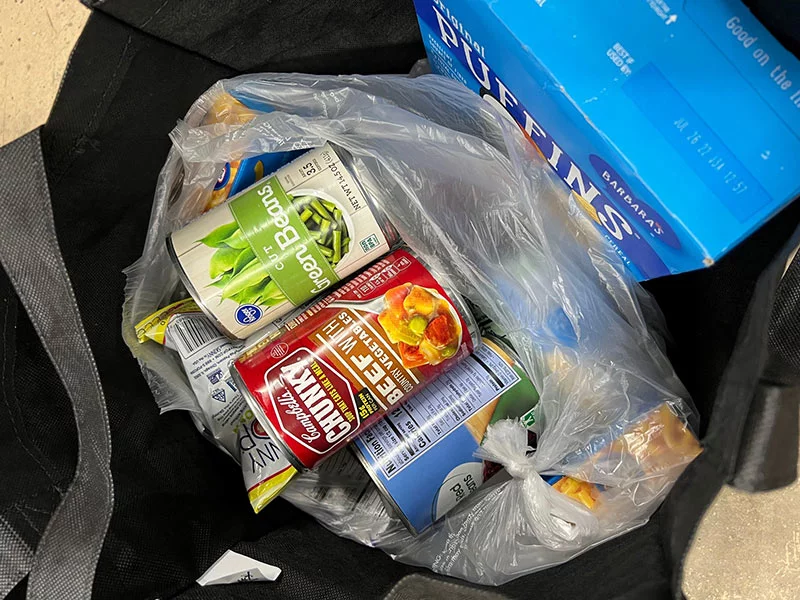
A wise woman, Lynne Telford, recently carried bags of food containing macaroni and cheese, cans of beans, pasta and other treats into an ambulance bay in Woodland Park last week.
Telford’s act of kindness – the delivery of food – signaled the beginning of a creative new program to address food insecurity in Teller County and Park County.
The program is a collaboration of Telford’s organization, Care and Share, Ute Pass Regional Health Service District and UCHealth.

“Like most good things are, this is a collaboration,’’ said Telford, CEO of Care and Share Food Bank for Southern Colorado, which provided 25 million pounds of food last year to people in 31 southern Colorado counties.
The collaboration works this way: UCHealth has given $10,000 to Care and Share to provide food that will be loaded onto ambulances operated by Ute Pass Regional Health Service District. When a paramedic or EMT encounters a patient who has limited or no food in their home, they’ll provide a food bag.
“We know that when we talk about the social determinants of health, you can’t address your other needs if you are hungry. We know that there are people going to bed hungry every night and it is hard for them to focus on their overall health if they are hungry,’’ said James “Tiny” McLaughlin, director of community paramedics for Ute Pass Regional Health Service District.
“We don’t see this as a long-term solution. We see this as identifying someone in crisis and empowering them with resources to get the long-term health that they need.’’
Food insecurity in Teller and Park counties
The community benefit program is expected to serve 500 families annually, said Ron Fitch, president of UCHealth Pikes Peak Regional Hospital and Grandview Hospital.
“We provide the funding, Care and Share provide the resources, and the community paramedics go out and see patients who are off the grid, have transportation issues and cannot make it to a doctor. The paramedics have the ability to do on-site assessments and refer patients to the emergency department or to a primary care doctor. If they identify a food insecurity issue, then they can hand out a bag of food,’’ Fitch said. “It’s part of our vision of moving people from health care to health.’’
Throughout southern Colorado, one in eight people don’t have enough food to eat and it is worse for children. One in five children don’t have enough food to eat, Telford said.
Fitch said that an estimated 3,000 households in Teller County and southern Park County have food insecurity issues – about 10% of the population.
“We see the need every day,’’ McLaughlin said. “Our goal with the program is to identify patients who are marginalized for different reasons. One of the major reasons for marginalization is geographic isolation.

“Most of our district exists in a food desert, so access to food is a real challenge for folks. We see it every day and now, because of our partnership with Care and Share and UCHealth, we’ve been able to partner together and come up with a viable solution. Community problems deserve community-wide solutions. Nobody can do this work in a bubble, and we all have to work together to ask the hard questions and work together in a selfless way to come up with the right solutions.’’
After providing a bag of food, a paramedic or EMT may also begin to provide information about additional health resources in the community.
“When one of our paramedics encounters someone who is experiencing food insecurity, it is about having a solution as part of a partnership, right away, where we can provide that first step – that crisis intervention step.
“And then we can start working on the other social determinants of health, with getting them set up with UCHealth, with Teller County Public Health, with DHS, and with the Front Range Clinic if they are struggling with substance use disorder,’’ McLaughlin said. “When you address that hunger piece, you can create a bond and a partnership to empower the patient to address their medical needs. No one should ever go to bed hungry.’’
